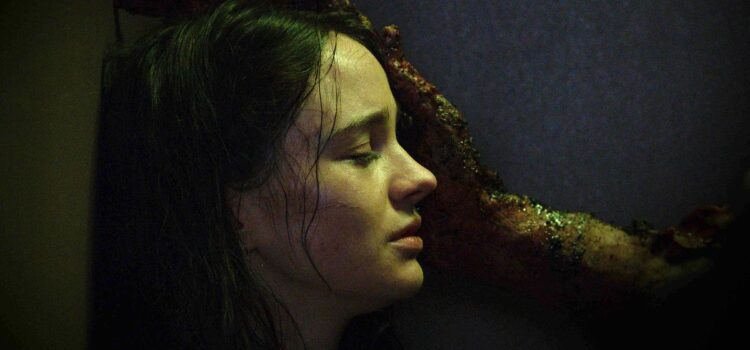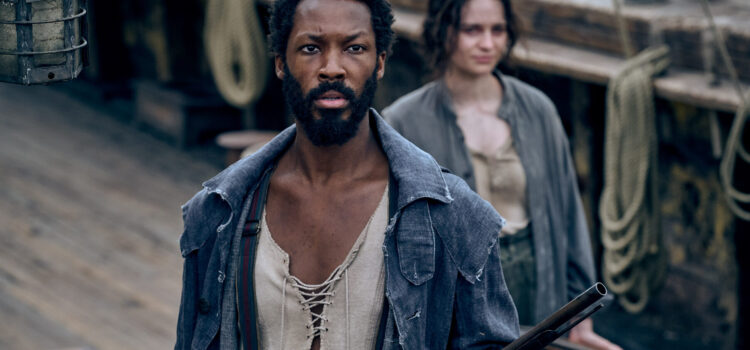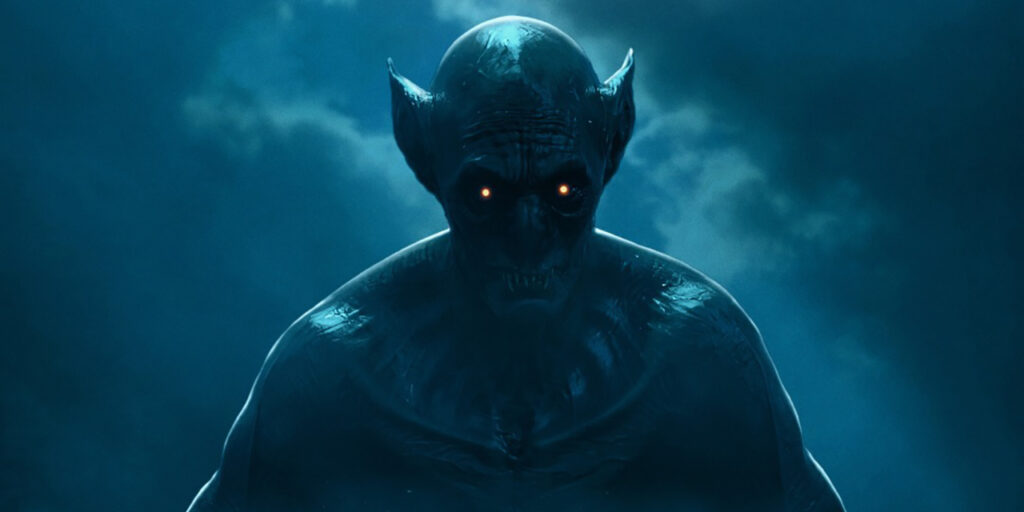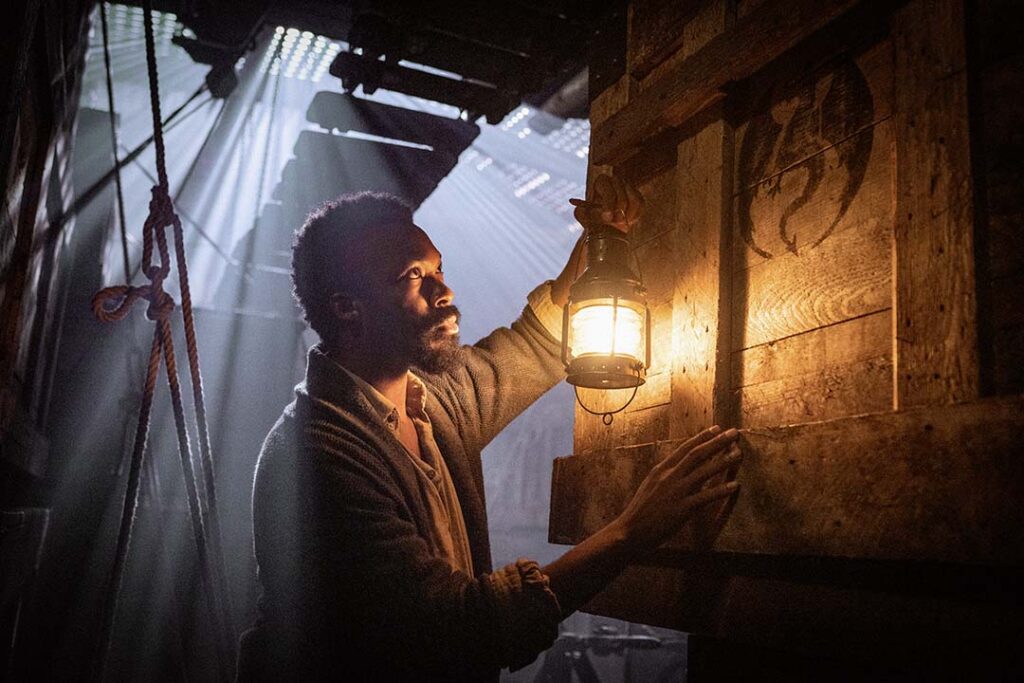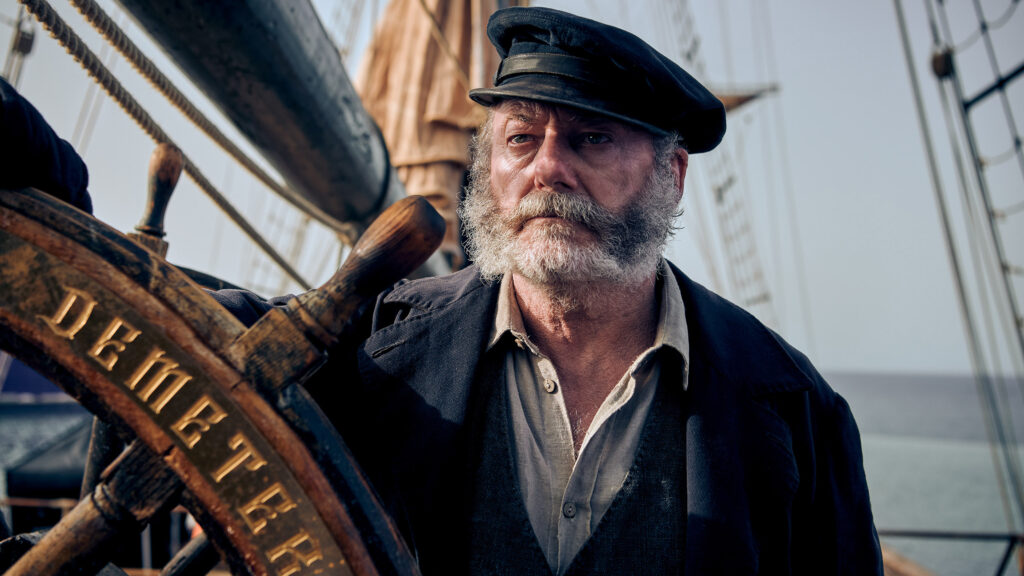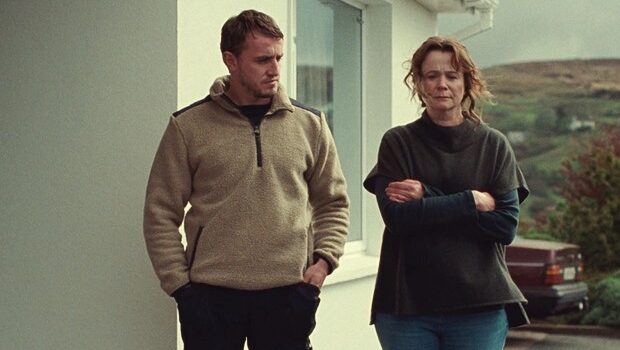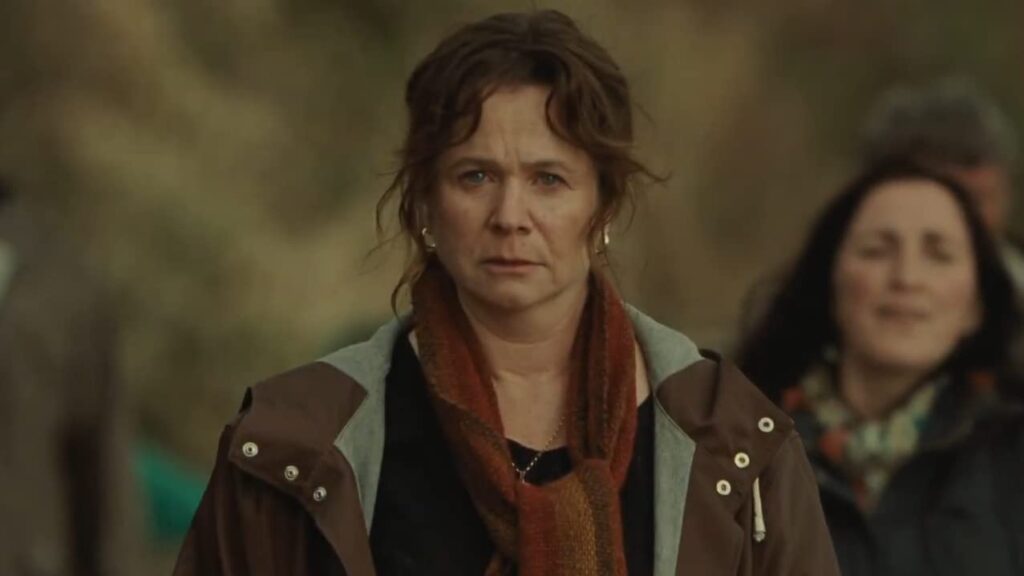By Alex McPherson
A disturbing and technically accomplished horror film, director Robert Morgan’s “Stopmotion” packs its imaginative ideas into a frustratingly predictable template.
Viewers follow Ella Blake (Aisling Franciosi), daughter of famed stop motion animator Suzanne (Stella Gonet). Suzanne, elderly and experiencing arthritis, can’t complete her final project on her own — so she forces Ella to mold grotesque miniatures and set up shots under her overbearing gaze.
Ella is berated for every mistake and unable to embrace her independence, personally or creatively. Any attempt at expressing herself is shot down, and Ella’s toxic relationship with Suzanne has instilled a sense of deep insecurity about her own abilities as a storyteller and as a human being in general.
Early on, Suzanne suffers a stroke, which sends her to the hospital, and Ella is tasked with finishing the film (a symbolic story featuring an ill-fated cyclops) on her own. Her caring but clueless musician boyfriend, Tom (Tom York), who’s seemingly unaware of Ella’s deep-seated trauma, helps Ella find an abandoned studio apartment, and she attempts to finish production.
She meets a mysterious, unnamed little girl next door (Caoilinn Springall), who expresses immediate fascination with stop motion animation but calls Ella’s current project “boring.” She proceeds to feed Ella a new story of a girl being chased through the woods by an amorphous “Ash Man” and pushes Ella to incorporate out-of-the-box materials for the characters — from raw meat to mortician’s wax and roadkill. Ella, continuing to feel as if she has no agency of her own, complies with Little Girl’s requests, all while experiencing visions of her gnarly stop motion creations coming to life in the real world, the Ash Man stalking her not unlike her heroine.
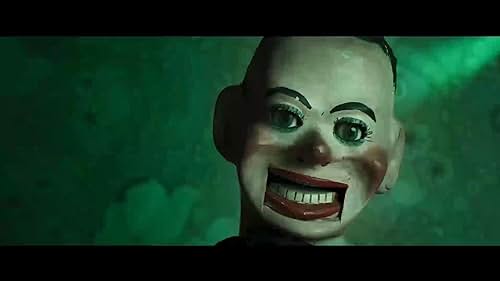
Tom and his sister Polly (Therica Wilson-Read), who also happens to be a professional stop motion animator for commercials, grow increasingly concerned over Ella’s declining mental health, but their efforts do little to prevent her slide into madness. Ella’s desire to create art is poisoned by trauma, repression, and self-loathing; a liberating and self-destructive force that she both controls and is controlled by.
With meaty (pun intended) ideas like this, and visual effects that never fail to unsettle, it’s disappointing that “Stopmotion” is so conventional in its narrative beats. Underwritten characters and a rushed setup hold it back from connecting on a deeper emotional level, neglecting to make the most of a committed performance by Franciosi and a tragic story that deserves an approach less beholden to tropes.
Morgan, a stop motion animator himself who previously directed short films, nevertheless has a striking voice in his feature-film debut, exploring the potentially destructive depths of his craft. Indeed, “Stopmotion” is a sensory treat, greatly enhanced by evocative mood-setting, crunchy sound effects, and Dan Martin’s outstanding creature effects work — seamlessly melding the real with the imagined as Ella’s sanity crumbles before our eyes and blood flows to a copious degree. Aurora Vögeli’s patient, at times hypnotic editing, combined with Léo Hinstin’s cinematography, contribute to a hazy disorientation, which the film maintains from beginning to end, catching us off guard with bursts of gory violence and off-brand arts and crafts.
Franciosi, too, is stellar, lending Ella tangible sadness, frustration, and volatility with her eyes and body language alone, far more effectively than the occasionally awkward screenplay by Morgan and Robin King. Ella is a damaged soul, traumatized and beholden to an artistic calling, driven mad by a desire to prove herself and “take control” of her own life, regardless of those she harms along the way.
Springall effectively brings her alternately chilling and annoying character to life, guiding Ella down a path towards her base impulses for violence and repressed rage, encouraging Ella to succumb to her demons rather than craft a new narrative for herself and her fleshy armatures. After all, as Little Girl explains, “All good artists put themselves into their work.”
Ultimately, however, Ella’s deterioration is rendered less involving than it should be. Some of this is due to the flatness of supporting characters like Tom and Polly, who embody archetypes (the supportive yet emotionally immature boyfriend, the seemingly friendly back-stabber) that are both shallow and dull in comparison to our tormented protagonist, as is Suzanne — a villain painted in broad strokes.
This contributes to a general lack of grounding and tangible stakes throughout “Stopmotion” that, combined with the one-note depiction of Suzanne and Ella’s relationship to begin with, makes Ella’s de-evolution less poignant than inevitable and schematic, no matter the film’s niche framing.
Sure, there’s plenty of memorably icky set-pieces and stylistic flourishes, but “Stopmotion” can’t escape a prevailing sense of predictability — any surprising or thought-provoking topics the film broaches are in service of a central arc that’s foreseeable from the outset.

Perhaps that’s acceptable; this is a horror film, after all, with an obvious appreciation for body horror and pessimism about humanity, but Morgan’s film misses an opportunity to go beyond surface shocks to leave a lasting impression once the credits roll.
Formulaic though it often is, “Stopmotion” still promises great things to come from the filmmaker in the future, if style and substance can be melded into a whole that truly comes to life.
“Stopmotion” is a 2023 British animation horror film directed by Robert Morgan and starring Aisling Franciosi, Tom York, Stella Gonet, Therica Wilson-Reed, and Caolinn Springall. It is rated R for violent/disturbing content, gore, some language, sexual material and brief drug material, and the runtime is 93 minutes. It opened in select theaters in the U.S. on Feb. 23, and will be available on video on demand March 15, with the digital release expected to be available on major platforms like Apple TV, YouTube Movies, and Vudu. IFC purchased the film and will likely stream it on Shudder in a few months. Alex’s Grade: B-
Alex McPherson is an unabashed pop culture nerd and a member of the St. Louis Film Critics Association.

